Growth Industry
This eight-acre estate in Provence was too good to keep in the family — so now it pays its way with public visits and garden produce.
La Mouissone has always been a productive property. The olives that have been grown on the steep, sunny terraces for hundreds of years are still harvested, with the trees cared for by a local farmer. So it seems appropriate that I find Lady Lockett, the owner of this spectacular corner of Provence in the hills east of Grasse, busy making marmalade in the kitchen.
On go the red spotted lids and, when everything has cooled down, she applies La Mouissone labels. The marmalade will be sold alongside the olive oil, herbal teas, fig jam and pickled lemons that she grows and produces at the eight-acre property. “I can’t waste anything,” says Lockett, who prefers to be known as Maggie. “It costs more than that to make it, and I don’t charge for my time, but I regard it as our advertising.”
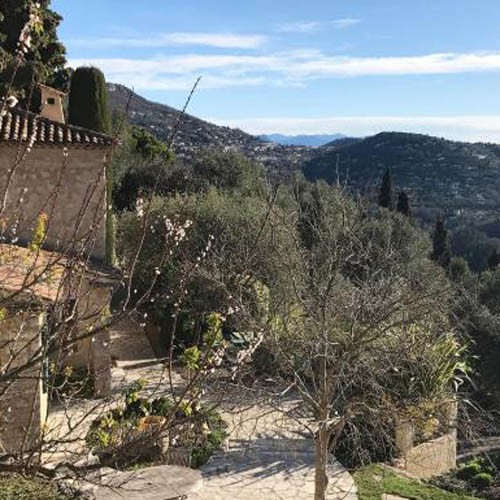
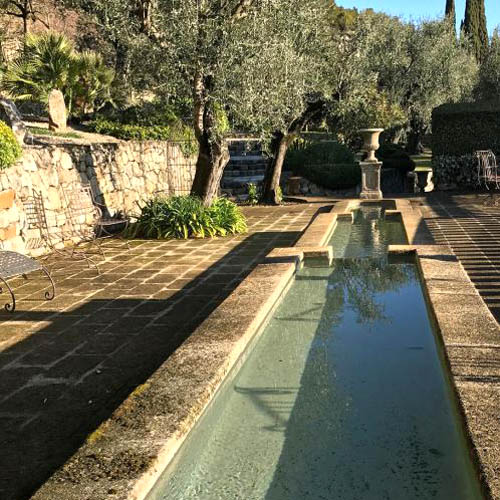
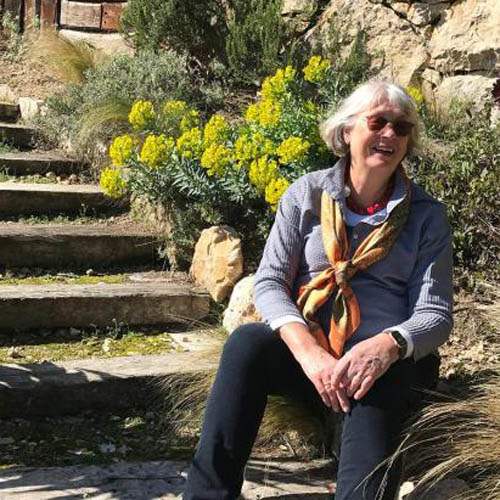
Her husband, Sir Michael, is a reputation manager who has also organised events including the London Olympics opening ceremony, the opening of the Shard and the Queen’s rather soggy Diamond Jubilee pageant. Though largely based in London, he visits La Mouissone every month.
Lockett could well afford to spend her days wafting between luncheon dates and the spa, leaving the marmalade-making to a housekeeper. Instead, having grown up in Leicestershire with German parents who had an allotment, she has the tradition of making the garden pay for the family in her blood. So, four years ago, at 62, she decided to make a business from La Mouissone’s ambitious garden, which she has been working on since the family bought the property in 1998.
She now hosts events, parties and tours, provides horticultural and design services, and runs a guesthouse. Next month, the grounds will be open two afternoons a week to those who have booked, and there will be workshops as part of Jardival, a festival celebrating the region’s gardens.
The English have been making spectacular gardens in the south of France for many years, but most of them have been close to the Mediterranean, where the climate is subtropical and the terrain lusher. Inland planting is often restricted to Provençal clichés such as clipped lavender, box, olives and holm oak. All these are present at La Mouissone, but they are joined by a rich variety of plants from across the world that will survive in the dry conditions.
The climate is not as harsh as further towards the Rhône Valley. “We have been down to -8C here, but it is rare,” Lockett says as we sit in the spring sunshine on a terrace beside the house, 1,300ft above sea level and looking out over the hills to the sea 10 miles away. “It can go up to 32C, but we always have this nice breeze. The soil is the biggest challenge — it is thin, limey and full of rocks.”
French nurseries can be restricted in what they supply, so Lockett brings her own plants from Suffolk, where the family also have a house. “French visitors ask me where I buy the plants, and they are horrified that I get them in England. ‘Isn’t France good enough?’ they say. It is good enough, but it is not diverse enough. You can’t get exactly what you want. East Anglia is the driest place in England, so a lot of the plants are suitable for here.”
When the couple bought the property as a holiday home for their young family, there was little here apart from 250 ancient olive trees and a series of crumbling terraces. Lockett declines to share how much they have spent, but says: “It’s a life project, and it’s cost us a lot of money, but more in the development than the purchase.” The foundations have been expensive enough: “It has been 20 years of building walls. We must have spent about €1m on walls.”
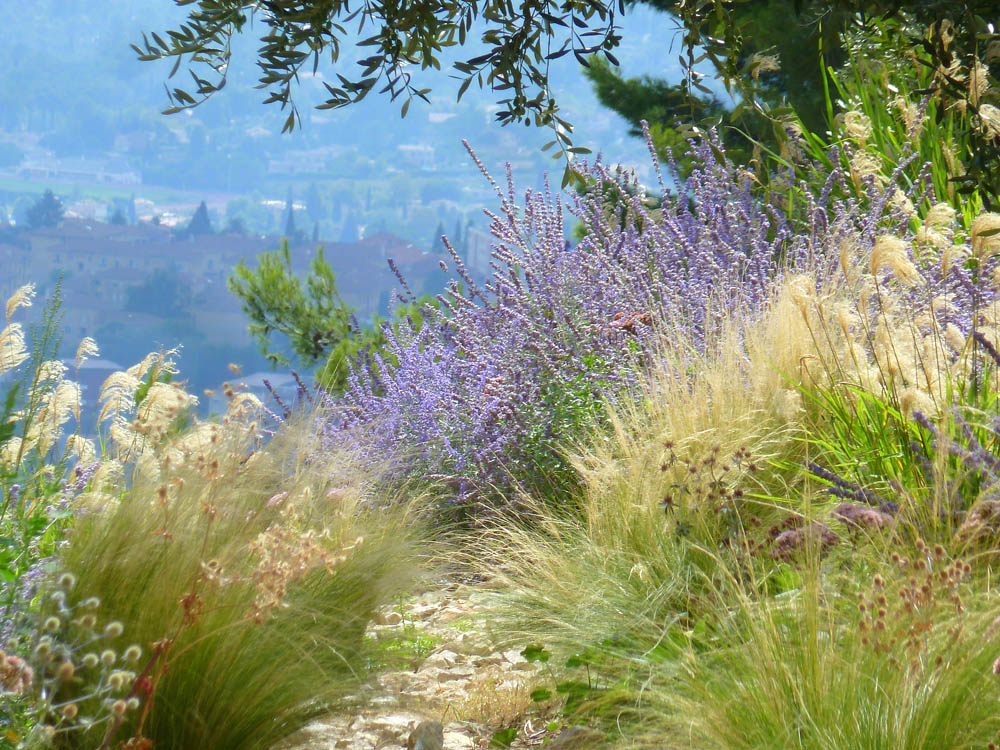
Once terra firma was established, she could start planting. First to go in was a bamboo garden, and over the years Lockett has added many diverse areas, among them a prairie garden, two potagers, a spring meadow and a terrace devoted to plants from the southern hemisphere. The entire estate is designed to embrace the dramatic views and gradually meld into the woodland above.
“I like working with the landscape — not too much clever stuff, but interesting and unexpected,” Lockett says. “There has been no plan behind the whole thing. It has all just evolved.”
The effort has paid off. She has a Qualité Tourisme certificate and is waiting to hear whether La Mouissone has achieved jardin remarquable status, France’s highest gardening honour.
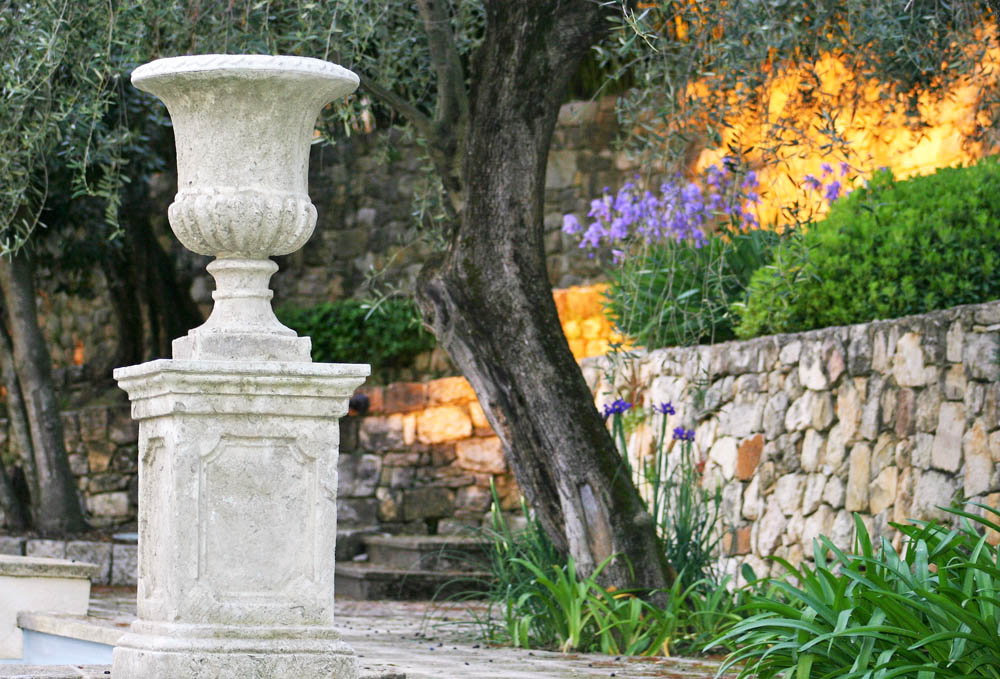
None of this could have happened without Cyril Valhérie, head gardener in a team of three (plus an intern). He joined about seven years ago, rolling up for his interview on a motorbike like a horticultural James Dean.
“It was gardening love at first sight,” Lockett says. “He said, ‘I notice down below you have got Robinia pseudoacacia [a tree that is a virulent weed in these parts]. I could cut that down and use the wood to make a compost area.’ I thought, wow, we have got compost, we have got a Latin name and we have got recycling. This will do fine.” A qualified tree surgeon, he used to work at the Paris Bourse, so has a good head for figures and for dealing with French bureaucracy.
It was Lockett’s husband and three grown-up children who encouraged her to open the garden, rather than keep it as a private pleasure ground. “Mike and my elder daughter said, ‘This is looking really good — it is rather better than for just the family.’ So we did a business plan. It was quite impressive, and we still look at it to check we still have the same ideas.”
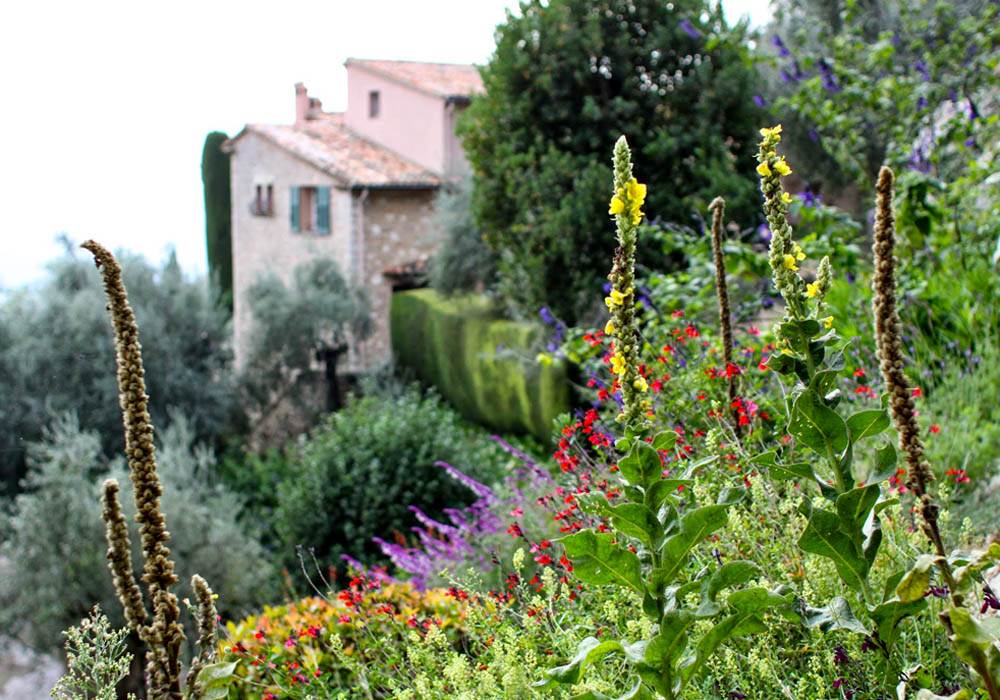
There was also a financial incentive. “The idea of the business is to generate enough money to pay the team, so we can make the garden.” Running La Mouissone is expensive, and not just because of the maintenance. Lockett spends up to six months a year there: “It is very different having a second property. Last year we paid €33,000 in taxes, and our social charges for the company are about €9,000 a quarter. What the hell are we doing?”
She obviously enjoys sharing her talents with a wider audience, though, and the inroads into sometimes standoffish local life that gardening has brought. “We have got used to being a company, not just an ageing housewife and a gardener. It is fun to make money and to do something new. Cyril jokes with me, ‘Please stop having ideas!’
“You realise you (possibly) have only one life, so you had better use it. I wish I had woken up 10 years earlier.”
As for her husband, the family joke that his interest in the garden is focused on how smart it looks when his friends visit. But he is obviously rather pleased with his wife’s late flowering. “I heard him say the other day, when we were travelling, ‘Maggie is a really famous gardener.’”
Caroline Donald
Published: March 26 2017, The Sunday Times